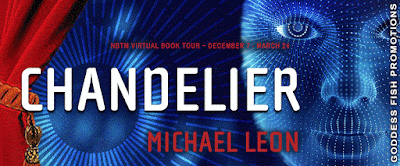This post is part of a virtual book tor organized by Goddess Fish Promotions. Robert W. Smith will be awarding a $25 Amazon or Barnes and Noble GC to a randomly drawn winner via rafflecopter during the tour. Click on the tour banner to see the other stops on the tour.
Welcome to It's Raining Books. Why do you write in your genre? What draws you to it?
Historical fiction. In my youth I read everything I could get my hands on that about history, from The Civil War through WWII, the Old West, virtually anything in historical fiction and intelligent, thoughtful thrillers. By senior year of high school, I’d focused primarily on writers like Graham Green and Len Deighton.
Some years into my law career I started to write my first book about something I understood. John Grisham was the hottest thing in print then and what the hell did he know about defending murderers? That was my business. So I wrote about crime and corruption in Chicago, had two legal thrillers published, but the genre bored me.
Then I tried my hand at historical fiction based on true stories or real events. I wrote “The Sakhalin Collection,” a fictionalized account of “The Sakhalin Koreans,” thousands of Koreans citizens kidnapped from their homes by the Japanese during WWII and sent to work and rot in the mines of Sakhalin Island. After the War, the island became a Soviet possession and the Soviets left the poor souls to rot, all with knowledge and tacit approval of the U.S. and its Western allies. Many of the Koreans were still on Sakhalin when I served in the Air Force during The Cold War as a Russian Linguist for the NSA. I heard the story as a young airman in Wakkanai, Japan, only twenty miles from the Soviet island. I met a beautiful young Korean girl working as a bartender in the Airmen’s Club and was curious about how she came to be living in such a remote corner of Japan, a notoriously homogenous society. She told me the story. Hers was one of hundreds of families to have escaped in fishing boats and such. The tale haunted me for years and I finally wrote it. New Leaf Books published it in hardcover in 2007. That’s how I found my genre.
What research is required?
Even when I was writing legal thrillers, my head was always in the clouds somewhere with Len Deighton’s two heroes of “Goodbye Mickey Mouse,” flying wing to wing, brothers in all but blood, one mortally wounded and both waiting for the moment the sea would take him. Two simple salutes and an exchange of smiles across P-51 cockpits told a tale I could never forget, brought it to life without a single word and made me cry, bringing me closer to an understanding of brotherhood than could any expertly crafted pages of conversation or narrated reflections.
That’s when I recognized my mission, bringing my commentary and observations to life in compelling stories of memorable characters and events from history. Deighton and Graham Greene, Solzhenitsyn, even the early Twentieth Century author, Joseph Conrad, had all along been writing consistently with a theme, some exploration of humanity, inhumanity, brotherhood, colonialism, war, ant-war. It was always there and it’s what drew me to them in the first place. Besides, I love the process of recreating a time and place; the customs, fashions, buildings, even the restaurants. You have to dig into all of it, even the way they spoke. It’s all there on the internet, even a pathway to official records. I mean, novelists aren’t historians, but that doesn’t mean we can’t look back and recreate the past. I want to make that world recognizable to someone who experienced it, even want to live there myself. I realize it’s impossible to completely avoid the evolution of social anthropology into the Twenty-First Century, but research helps and it’s at your fingertips.
Name one thing you learned from your hero/heroine.
I think that question is best answered by a quote from the book, a reflection from my protagonist, Ethan Cooper, wrestling with the moral dilemma of his friend’s lover. Does she really love him or is she using him to gain information? “Maybe she really loves him or maybe it’s all true at the same time, he thought. If he’d learned anything in the Philippines, it’s that good and evil can coexist in the same place, even in the same person. Besides, it was going to end badly for Marty anyway. Let the man be.”
Do you have any odd or interesting writing quirks, habits or superstitions?
Not sure if you’d call it a quirk, but I can only write in my own space, with all my “stuff” around me. I think if we move in the future, I could carve out another “space,” but I’m not one to write on a plane or in a hotel or on a recliner in the family room.
Are you a plotter or pantser?
Oh, my goodness, I don’t know what a “panster” is. Is that a guy who writes in his underwear? Heavens, no. My wife wouldn’t allow that. We live in a condo. The neighbors could look right in if they walk by the window. That might cause a scandal. As for a “plotter,” you got me there. I still try to plot the whole book when I’m ready, but it never works out. First, I choose my historical time and place, generally selected because of some specific historical event or characters. I will have a general theme already in mind, like brotherhood, loss, old-age, redemption, duty, sacrifice. You get the drill. Next, I work with ideas until I can come up with a one-sentence (usually a long one) description of the book. Then I define and court my characters. At that point, I try to do a chapter-by-chapter outline. I follow the outline, usually for three or four chapters before my characters take a detour. I know them better by then and they always seem to hijack my story. The result is I have to go back and rewrite the opening chapters because they suck. Eventually I have a book. So I guess I’m not a plotter either.
Look to your right – what’s sitting there?
A picture of my beautiful daughter with my two-year-old grandson. Some of my most valuable “stuff.” You phil me?
Anything new coming up from you? What?
Glad you asked. I’m shopping a historical fiction. A young Irishman arrives in Chicago in 1903 to visit his brother, but finds himself on a quest to peel away secrets and rediscover a dead sibling he idolized but never really knew, hoping in the process to learn the true meaning of brotherhood--but the secrets may kill him first. His quest reveals an Irish Republican plot to assassinate a visiting British Royal and into an alliance with two women, a mesmerizing Jewish widow and a struggling young Irishwoman, his brother’s former mistress. The women will teach him existential truths of life and love, guiding him along his path, each in her own way. But the brother he finds may not be the brother he remembers. A Long Way from Clare is a candid story of immigrants and one man’s struggle with the relationship between bigotry and justice in an unforgiving city where your mistakes can kill you if your good deeds don't kill you first. This story was inspired by the life and alleged suicide (1914) of my wife's grandfather, Andrew J. Murphy, a Chicago Policeman, Irish immigrant and bar room Irish Republican. The family believes this version. Personally, I think he was drunk on duty and fell into the Chicago River.
Do you have a question for our readers?
Yes. What the heck in a “panster?”
On the run from a hangman’s noose, a young man joins the army in search of anonymity, but lands in the Philippines in the closing phase of the war (1901), where his life intersects with a beguiling and mysterious young Filipina, a disillusioned Catholic priest and an American “Negro” deserter. They join forces, each in his or her own way, to hold back the tide of greed and colonial barbarity from a ravenous Eagle. At great cost, the young soldier will find his place, his people and himself. But to end his running, he must endure the last battle and the dark jungle beyond that holds the key to his fate and future.
One will die in the fight. One will learn that truth wears no flag and must be pursued and safeguarded, no matter the price. The other two will live forever, legends in the minds and hearts of the Filipino people.
Read an Excerpt
“Good evening, Marty,” he said, resting his (behind) on the scratchy log beside his friend, careful to avoid the parallel ditch underneath and just behind.
Looking up and framed by the dim light, Marty said, “Good evening, Ethan. Beautiful night. In a week or so, the bark will be worn down. It won’t be so damned scratchy. People will flock here at night just for the view.”
“You never stop, Marty.”
So they sat there, side by side, beneath a canopy of stars. “What are you doing here, Ethan? Marty asked pensively. “I mean why the army? I know you don’t want to be here.”
Marty was his best friend, his only friend if you didn’t count Jonesy, but a confession now couldn’t help either of them and might even put Marty in jeopardy. As long as Marty was in the dark, nobody could credibly accuse him of concealing a fugitive. So, he told his friend a small part of the truth. “My old man was with the 62d Pennsylvania in The War. It kind of defined him. You know?”
“Yeah, I get it. I wanna be like my father. That’s one of the outfits in the fancy French uniforms. Lifelong glory and respect. Well, Ethan, you missed your war. No glory here, but you already know that.”
The nocturnal jungle behind them offered only silence, save the clatter of crickets. There they sat for a fair spell, two bare behinds under a crescent moon on the edge of the jungle at the end of the world. For a long while, neither man felt the need to break the silence. Then, just as Ethan had decided to tell his friend about Tala Espinosa, Marty announced quietly, “I’m a priest, Ethan.”
“What?”
“A Roman (XXXXXX) Catholic priest.”
About the Author:Bob was raised in Chicago, enlisting in the Air Force at age eighteen during the Vietnam War. Following a year of intensive language training at Syracuse University, he served three years as a Russian Linguist in Security Service Command, a branch of the NSA. Upon return to civilian live, he attended DePaul University and The John Marshall Law School in Chicago on the G.I. Bill while working as a Chicago Transit Authority Police Officer. Thirty-odd years as a criminal defense lawyer in Chicago ensued. His first book was Immoral Authority (Echelon Press, 2002) followed by Catch a Falling Lawyer (New Leaf Books, 2005) and The Sakhalin Collection (New Leaf Books, 2007, hardcover)
Website: http://www.robersmithbooks.com
Twitter: http://www.twitter.com/smith_author
Instagram: http://www.instagram.com/robertsmith857
Goodreads: https://www.goodreads.com/author/show/21018640.Robert_W_Smith
rsmith9184@aol.com Amazon: Amazon
Facebook: http://www.facebook.com/robertsmithbooks
a Rafflecopter giveaway



































